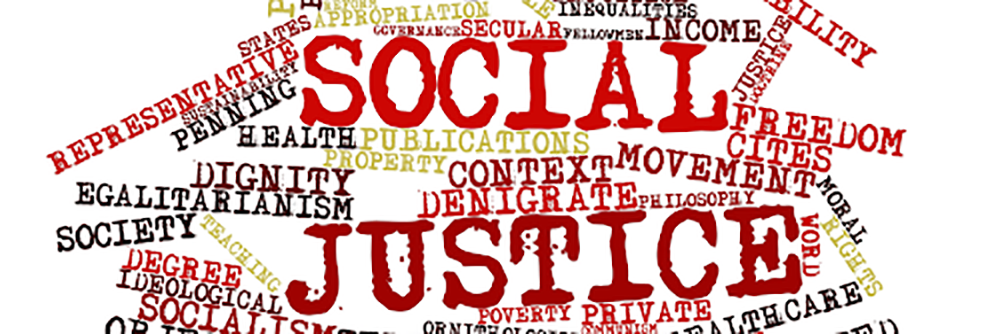The list of groups in Ireland, even today, that campaign, pressure, expose, support or oppose an endless list of issues is mind-boggling. In a lot of cases it is an industry grant-aided by the state – the so-called “third sector” of society.
Community groups, social groups, pressure groups, protest movements, unions etc. are all part of human history and, in large part, the making of history.
They come in many forms and continually evolve, either to the left of the political spectrum or to the right, or somewhere in between. Some are clearly in favour of the status quo and are considered to have originated from the system or the state, largely support it, and are considered part of the dominant power groups, while many other groups are ostensibly against the system of government and view themselves as discriminated against or exploited, though the actual lines between “for” and “against” the status quo are very fluid.
The nominally anti-system groups are those fighting from the bottom up and that mostly want better conditions: changes in the law, an end to inequality and exploitation, issues that are mostly based on social justice. They are generally reformist, whether they realise it or not. This is often fuelled by the emphasis on single-issue campaigns. They will say, “We need this sorted, and that’s it,” and they are not really bothered about the bigger, deeper picture. But during the course of struggle this too can change and the “dots” are sometimes joined up, in whole or in part.
A large proportion of the groups arise from class conflicts and the human need for a better life; others arise to maintain their existing class status of living, domination, and cultural ideas. But oppression, misrule, inequality and exploitation are the major drivers of the need to resist or fight for change through organised groups.
Most groups operate within the general orbit of the status quo. Many do not understand either the direct or the indirect links with power and capitalism; others choose not to.
On the other hand, most Marxists view the struggles of social, campaigning and pressure movements as one of the main ways in which we agitate for change, preferably transformative. It is a central part of the “organise, educate and agitate” methodology of the left. Involvement in such groups can, and often does, build the power and knowledge of the activists. This results in the “narrative of power” being interrogated, exposed, and quite often changed, though certainly not always.
Power will use its own campaign groups, or so-called monitoring groups, that support power or are certainly controlled by it, to promote and maintain the agenda of power. These groups act as a “weathervane” for governments and deflect the contradictions that exist in capitalism. They peddle and promote what is seen as “common sense,” as opposed to what Gramsci called “good sense.”
State-inspired “common sense” is intended to promote consent for state power within populations; and if the state fails to achieve consent it will resort to the use of coercion. Gramsci referred to this as the “compromise equilibrium”: either consent or coercion, coupled with the divide-and-conquer strategies.
There has always been conflict between pro-system and anti-system groups; but even that is not clear-cut, as the direction or make-up of either pro or anti groups can change, depending on circumstances at any given time. No human groups, on either side, are ever completely homogeneous. Differences always occur in the tactics of pro and opposition groups; but they evolve as well.
From a transformative viewpoint the tactics of the groups emanating from the bottom up have to be for an end to neoliberal capitalism. So the exposure, undermining and replacement of capitalism with socialism, then communism, must be the end goal – that is, the strategy.
While anti-system or anti-state groups learn and are motivated by their own lived and class experiences, they are also influenced by the very same state power they oppose, if only through state-influenced education curricula and media. However, anti-system or anti-state groups have to take cognisance of the reality of state power in the development of their campaigning tactics.
Various crises in capitalism, throughout history, combined with the push and pull from or between pro and anti groups, have forced capitalism to change. However, states and capitalism will always attempt to manage this change or even reverse it at opportune times.
The predicted reality is that neoliberal capitalism is going to continue to “present targets” by means of its attempts to extract wealth from the lower classes. This will be enhanced by the actions of imperialism. In the case of Ireland, the triple lock of British, EU and American imperialism is a dynamic factor. Coupled with colonialism, campaigning, pressure and political groups that oppose state power will have plenty to do.
The question is: Can Marxists work with the reality or even the need for expanding the reach and abilities of anti-capitalist, social-justice and campaigning groups, in whatever guise, to achieve a people-based parliamentary democracy in a socialist Ireland? Or can it only be the “one vanguard party” Marxist idea that can bring down and replace capitalism? Do we accept that the campaigns that come from below might inevitably be the genesis and dynamic of this type of Marxist vanguard party?
As E. P. Thompson once wrote, maybe it is not “whether we are on Marx’s side, but whether Marx is on our side.”






